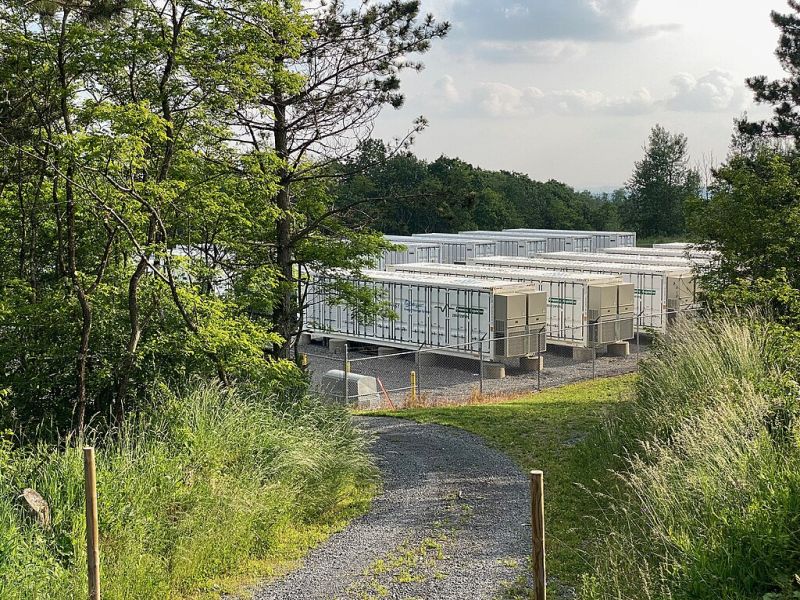Energy storage plan takes a battering from a Surrey Council
A bid to build a huge battery storage farm on green belt land in Shepperton has been thrown out after councillors decided it didn’t pass the ‘special circumstances’ test needed to build on protected countryside.
Sunbury BESS Ltd wanted to install 50 industrial-scale battery units – each the size of a shipping container – on 3.5 hectares of land north of Charlton Lane, next to the Eco Park. The site, sandwiched between the M3 and the railway line, is designated green belt.
Objecting to the scheme, Nigel Spooner said: “We ask the committee to refuse this application and thus avoid inflicting on Charlton village, Shepperton and Sunbury an entirely inappropriate, unnecessary and hazardous blight for the next 40 years.”
Officers had originally concluded the project’s climate benefits – supporting renewable energy and cutting carbon – outweighed the harm to the green belt and local landscape.
But Spelthorne Borough Council’s planning committee threw out the application on September 17, arguing there simply were not any “very special circumstances” to justify bulldozing into green belt land.
The scheme, designed to store energy for the National Grid and release it when demand peaks, was pitched as helping the UK hit its climate targets.
The battery site would store electricity when there is plenty spare and feed it back into the grid when demand is high to help balance the supply. The applicant’s agent said at the meeting: “The project will actively contribute to decarbonisation by reducing renewable energy curtailment.”
But Green Party Cllr Malcolm Beecher argued: “If we are still using fossil fuel power in our power stations to generate the electricity going into the batteries for storage, we are not reducing our carbon emissions.
“Unless we have a condition that only green energy can be stored in these batteries, there are no special circumstances to have it in the green belt.”
The company halved the size of its original plans following strong objections, but locals still were not convinced. Residents wrote more than 40 letters objecting to the proposal, raising fears about fire risk, noise, health hazards and what they described as “the industrialisation” of Shepperton’s countryside.
But in the end, it was the location that killed the scheme. Planning officers said the battery farm counted as “inappropriate development” in the Green Belt, causing a “significant loss of openness” and clashing with rules designed to stop urban sprawl.
Despite concerns about fire risks and safety, officials said there was no evidence to refuse the battery farm on these grounds. Surrey Fire and Rescue service as well as the Health and Safety Executive raised no objections.
A planning report stated: “The proposal would introduce a range of industrial plant within an open field, resulting in considerable harm to the openness of the Green Belt and encroaching into the countryside. These harms are not clearly outweighed by the benefits put forward.”
The decision is a major blow for Sunbury BESS Ltd, which argued the project would provide vital infrastructure to balance renewable energy supply and demand.
Image: An example of a battery storage “farm”: Invenergy Beech Ridge Energy Storage System at Beech Ridge Wind Farm in Greenbrier County, West Virginia. Author Z22. Licensed under the Creative Commons Attribution-Share Alike 4.0 International license.




